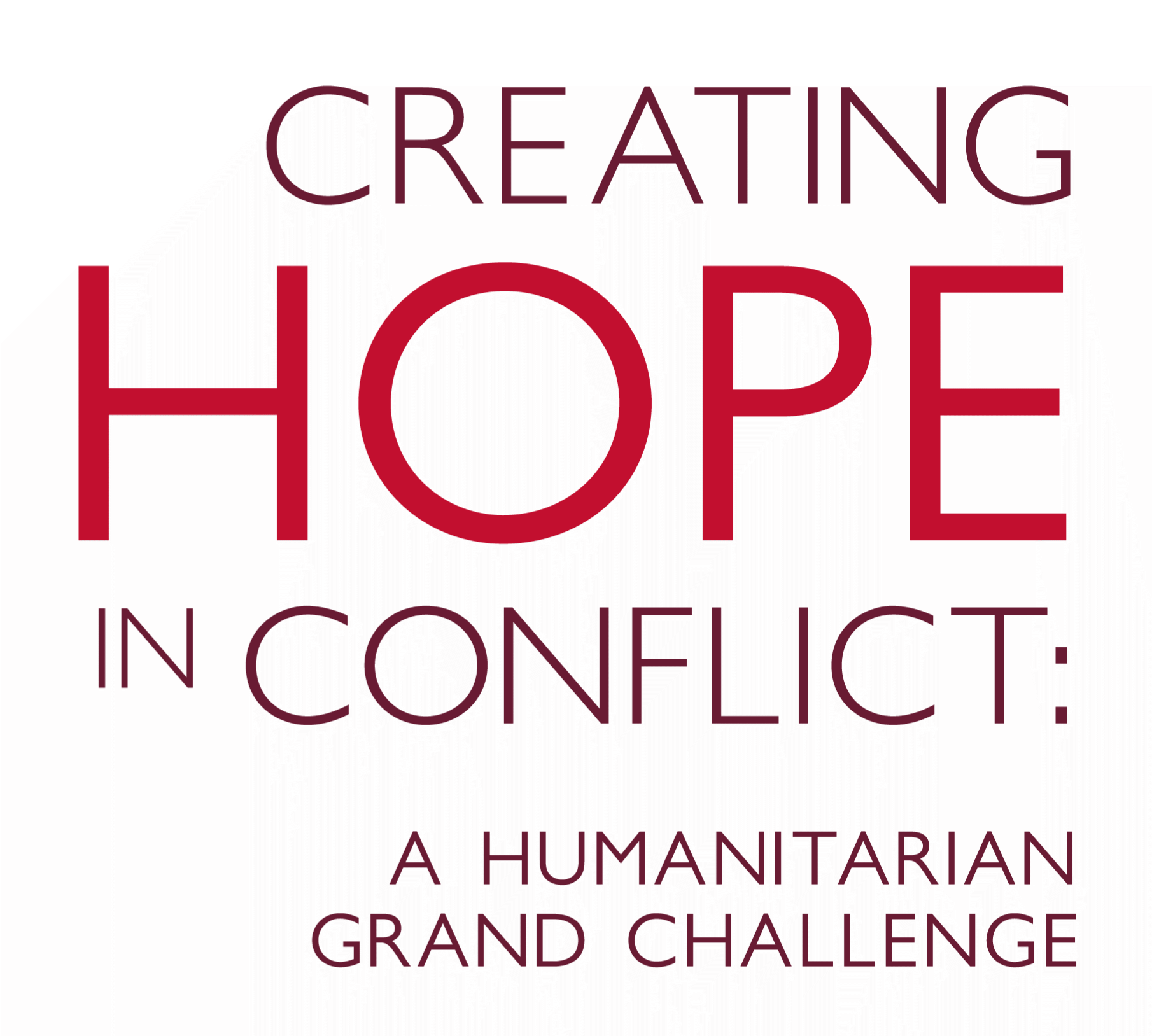This blog is the second in a three part series on conflict, climate, and water. If you have not yet read the first part, please read it here. Throughout the series, we explore the work of Creating Hope in Conflict: a Humanitarian Grand Challenge supported innovation, the Rainmaker Enterprise.
Conflict, climate and water scarcity: how Rainmaker is addressing these issues
Conflict and climate change are closely linked. From Syria to South Sudan, climate change is resulting in rising temperatures, water scarcity and food insecurity, acting as a threat multiplier, particularly to already vulnerable populations. Less predictable weather conditions affect the availability and distribution of rainfall, river flows and groundwater, all of which deteriorate water quality and its availability. This is affecting millions of people, with personal, social and economic implications.
Water scarcity, drought, and competition over scarce resources — often the result of climate shocks that are hitting low-and-middle income countries the hardest — ultimately exacerbate conflict and humanitarian crisis. Civil conflict is often caused by factors including low socioeconomic development, weak or unstable governance, and social inequality. Extreme weather and natural disasters driven by climate change can damage economies, devastate agricultural systems, and intensify inequalities among social groups. When combined with other drivers of conflict, these factors act as threat multipliers to violence and insecurity. In the case of ongoing conflicts and humanitarian emergencies, climate change can prolong violence and exacerbate poverty, health challenges, inequality, and food insecurity.
In South Sudan, the country of focus, lack of access to water in South Sudan is both a cause and consequence of conflict which continues to worsen the humanitarian situation. South Sudan lacks adequate water infrastructure and the few available water points are constant touch points of conflicts over scarce resources. Increasing droughts combined with insecurity and lack of capacity for sustainable water management drives chronic water scarcity. Across South Sudan, over half the population lacks access to clean drinking water. In 2019, a record 61 percent of the population faced crisis levels of food insecurity due to insecurity, lack of adaptive infrastructural systems, and climate-induced crop failures. In 2017, South Sudan ranked among the top five most vulnerable countries to climate change.
Most solutions to the water crisis in South Sudan focus on drinking water. While this is vital, water for farming and livestock is equally life-saving in an economy based on cattle and subsistence food production. The Rainmaker Enterprise was founded to build sustainable solutions to chronic water scarcity and food insecurity in humanitarian emergencies.
Innovating Water Solutions
With support from the Humanitarian Grand Challenge, the Rainmaker Enterprise is utilizing solar energy to access safe water for human consumption and regenerative agriculture in hard-to-reach places impacted by conflict and climate change, starting in South Sudan. Rainmaker’s programs are co-designed and co-managed with hard-to-reach communities who lead the way to a healthy, peaceful and regenerative future.
Community-based solar-powered water systems create a reliable means for rural populations to access and manage water year round, including during increasingly long dry seasons. South Sudan’s Ministry of Water Resources and Irrigation (MWRI) maintains that the lack of access to clean water is a direct consequence of unreliable infrastructure. At any given time, 30–50 percent of South Sudan’s existing rural water infrastructure is non-functional due to “lack of spare part supply chains, weak maintenance capacity, poor management, [and] inappropriate choice of technology.” Only 34 percent of rural South Sudanese have reliable access to a clean water source, a number well below the UN Sustainable Development Goals’ target.
Rainmaker seeks to overcome the sustainability problem of water interventions by implementing multi-use water supply and management systems that generate revenue — through sales of produce — to sustain local management, maintenance and ongoing investment. Solar-powered water pumps provide water for human consumption and household use as well as livestock rearing, while supplying farms with drip-irrigated water supply enables year-round local cultivation and employment opportunities. Cultivating year-round improves climate resilience and food security.
Rainmaker’s creation of sustainable access to and local management of water resources is designed to alleviate conflicts over scarce resources and support sustainable livelihoods. Women and youth, who are hardest hit by hunger and climate change, are the focus of Rainmakers programs. As women and girls are the primary groups responsible for water collection, local access to water supports girls’ education and allows women to engage in other productive activities. A focus on training and employing women and youth builds more resilient and food secure communities.
With abundant resources, including approximately 3,000 annual sunshine hours, fertile land, and thousands of unemployed youths and adults, Rainmaker believes South Sudan has all it takes to address its dire humanitarian needs. The organization is leveraging renewable technology to unlock these opportunities and engage the local population as key stakeholders in addressing hunger, conflict and climate change.
Through sustainable and market-based solutions, Rainmaker is transforming the lives of conflict-affected populations, and building dignity drop by drop.
